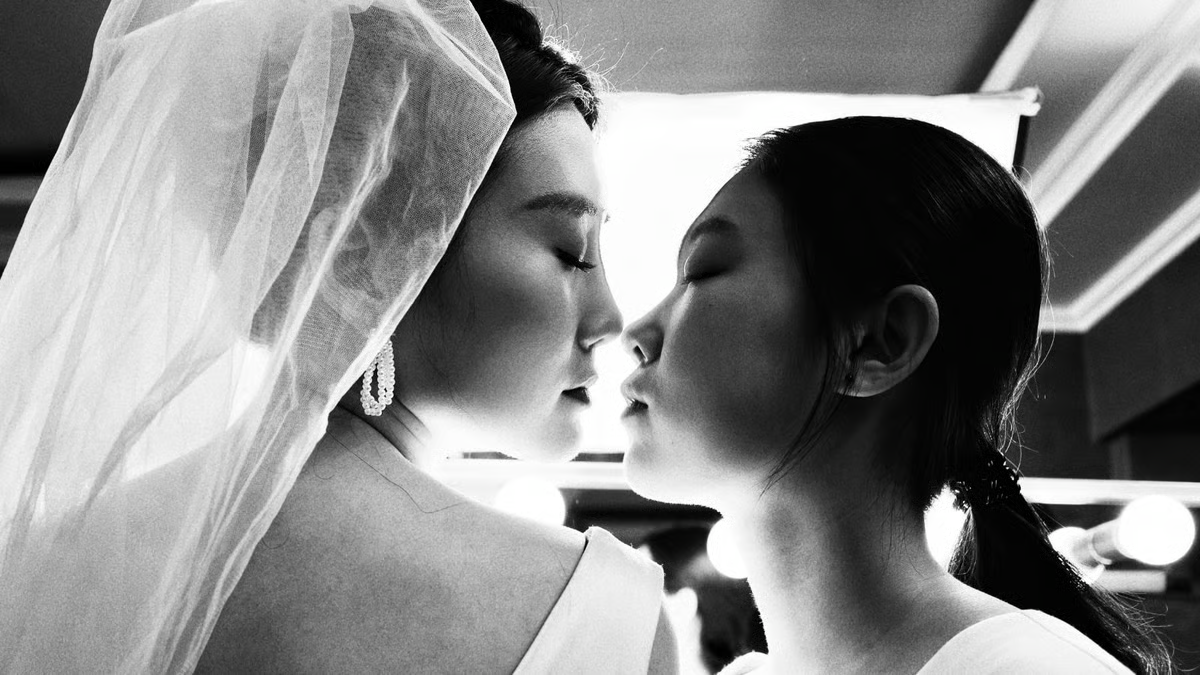After a year-long hiatus, this fall stand-up comedians were finally back on Chinese television to battle it out — who’s the funniest of them all? While viewers were eager to crown the annual “humor king,” the queens took the spotlight on stage in two shows.
Major streaming platforms iQiYi and Tencent have each launched their own stand-up competition shows, The King of Stand-up Comedy (喜剧之王单口季 Xǐ jù zhī wáng dān kǒu jì) and Stand-up Comedians and their Friends (脱口秀和Ta的朋友们, Tuō kǒu xiù hé ta de péng yǒu men), respectively. Last year, the industry came to a stand still with no online presence for stand-up comedy performances. Instead, many comedians focused on performing to live audiences offline. As comedians came out of hibernation this year, so has a strong contingent of female comedians.
In years prior, the number of female comedians on these shows could be counted on one hand. Among them, the comedian and writer Yang Li was battered online for instigating gender conflicts after delivering her penetrating critique of men who are “average but confident.”
Yang was certainly a trailblazer for many female comedians. This year, the women came out swinging with their own perspectives on society, unafraid to criticize the societal norms that have long favored male voices.
“Daughters have to do extra work”
One newcomer who goes by the stage name Echo, performed a set on the Tencent show Stand-up Comedians and their Friends discussing her family’s preference for boys over girls. Echo shared that she is one of four children, including three sisters and a youngest brother.
“In my family, two types of children don’t get beat, those with good grades and the son,” said Echo. “So in my family, the daughters have to work extra hard to be like the son, who does nothing at all.”
Caicai, another comedian on Stand-up Comedians and their Friends who also made her online debut this year, talked about “period shaming” in her set. She recounted an incident where she ordered menstruation pads through a delivery app, only for the delivery guy to have zero experience with period products and be ashamed of discussing menstruation in public.
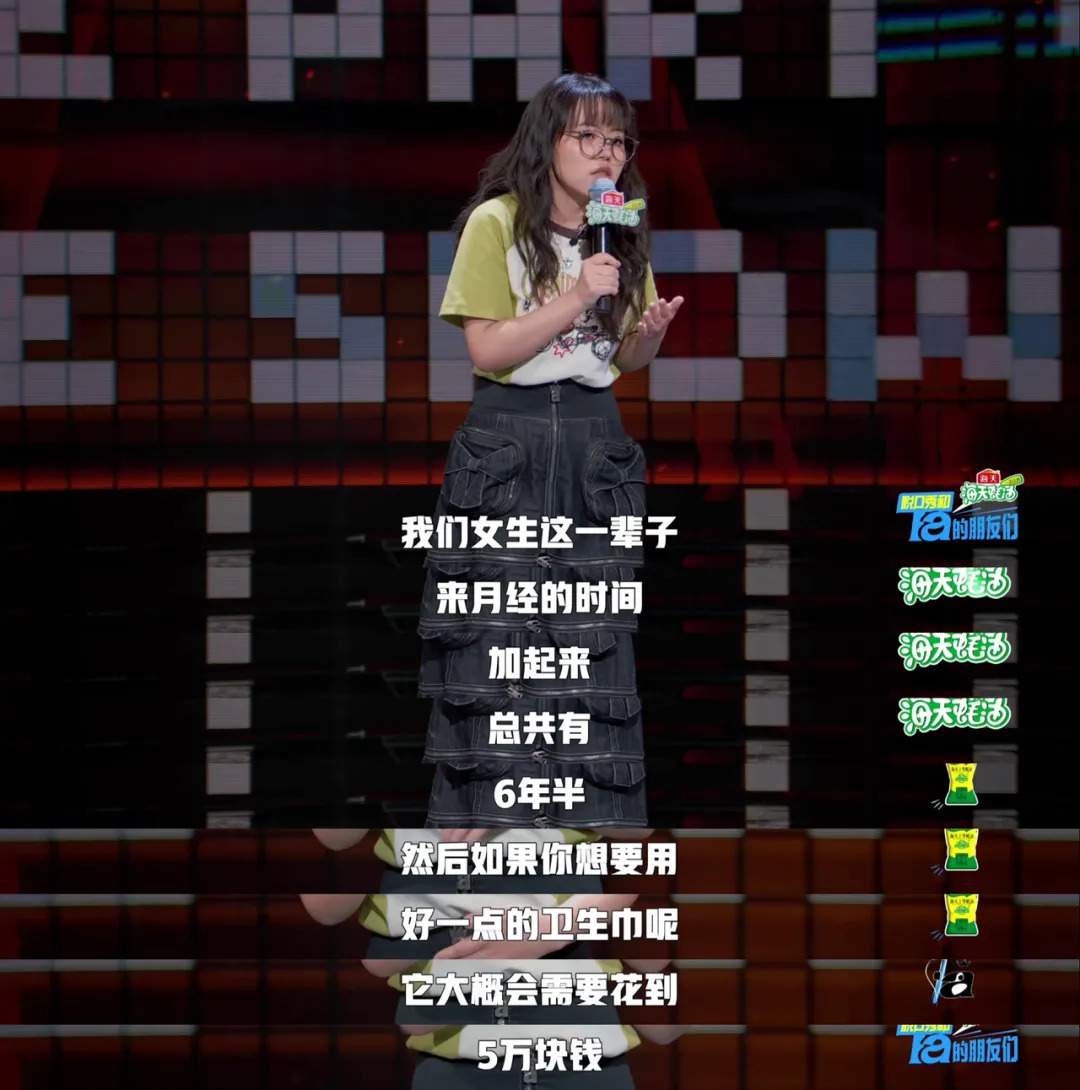
Seasoned comic and newlywed Xiao Lu went on stage on the iQiYi show King of Stand-up Comedy dressed in her wedding gown, delivering a set satirizing her husband’s laid-back attitude during the wedding planning process.
In total, there were 27 women competing in the two shows, making up one-third of the contestants. At their finales, Stand-up Comedians and their Friends had eight remaining contestants, with Shan He being the last remaining female contestant; The King of Stand-up Comedy had two female comedians, Xiao Lu and Tang Xiangyu, in its roster of final ten contestants. On The King of Stand-up Comedy, Xiao Lu came in second and was the highest ranking female comedian between the two shows. Alas, both competitions crowned their annual kings.
On the Tencent show, the rules require comedians to challenge each other to one-on-one battles. To avoid the fast elimination of female comedians on the show, the women actively decided to only challenge their male counterparts.
Though voting audience members for these shows are in fact mostly women , it still felt like the odds were stacked against the female contestants, who were mostly eliminated early. Are women just not funny? That’s what our implicit bias seems to be telling us.
Watching Chinese comedy from New York
Rachel47, who goes by 47 on stage, is a Chinese female comedian based in New York and cofounder and chief producer at the Chinese-language comedy club CrazyLaugh. At the beginning of her career in comedy, 47 (Sì qī) recalls a period where she felt discouraged when there was voting during open mics, and she would consistently come second to a rotating group of mostly male comedians.
47 knows that the setback can partially be attributed to her lack of experience at the time, and as she continues to hone her craft, she has become one of the most popular comedians at CrazyLaugh. On the other hand, these preferences are largely determined by the expectations of audience members who are used to male-dominated perspectives in comedy. When 47 went home to China to visit, she heard about the all female stand up show 三好姐妹 (Sān hǎo jiě mèi), which inspired her to produce the first all female Chinese language comedy show in New York, “May, I love myself 我爱我” (Wǒ ài wǒ).
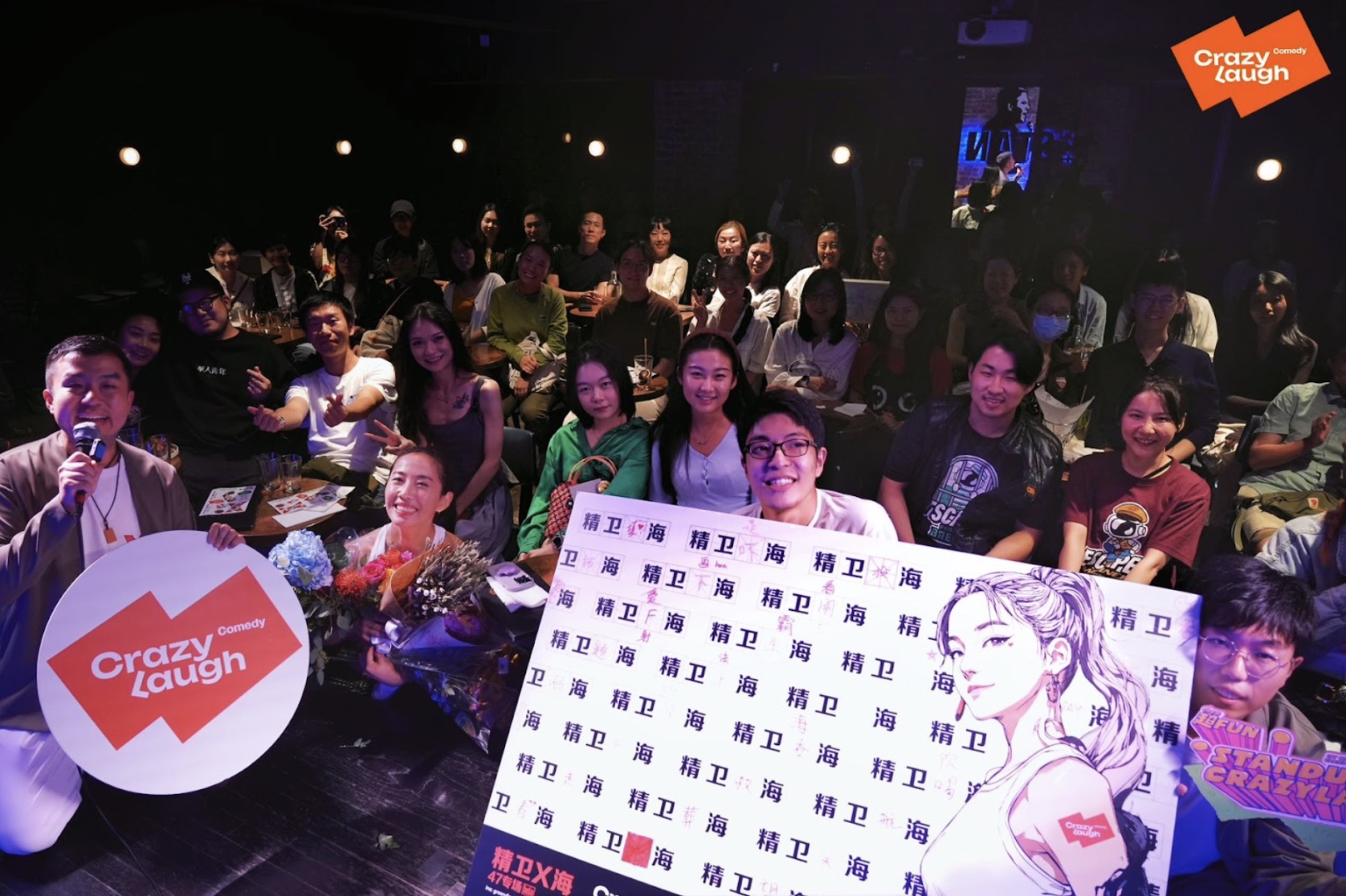
“There’s bias towards female comedians,” said 47. “Society does not expect women to be charming and funny, society thinks girls are happy-go-lucky, which means we’ve been naturally designated as an audience member.”
Even for female audience members, hearing a male comedian talk about their lives sounds and feels like comedy. Whereas female comedians must do the extra leg work and justify to listeners that their perspectives are equally important — and funny.
Still, 47 has never hesitated at talking about things that she cares about, which is why she set out to do comedy in the first place. Recently, 47 had her first comedy special at the popular New York comedy club, the Stand NYC, where she talked about an instance where she was harassed by a male restaurant owner.
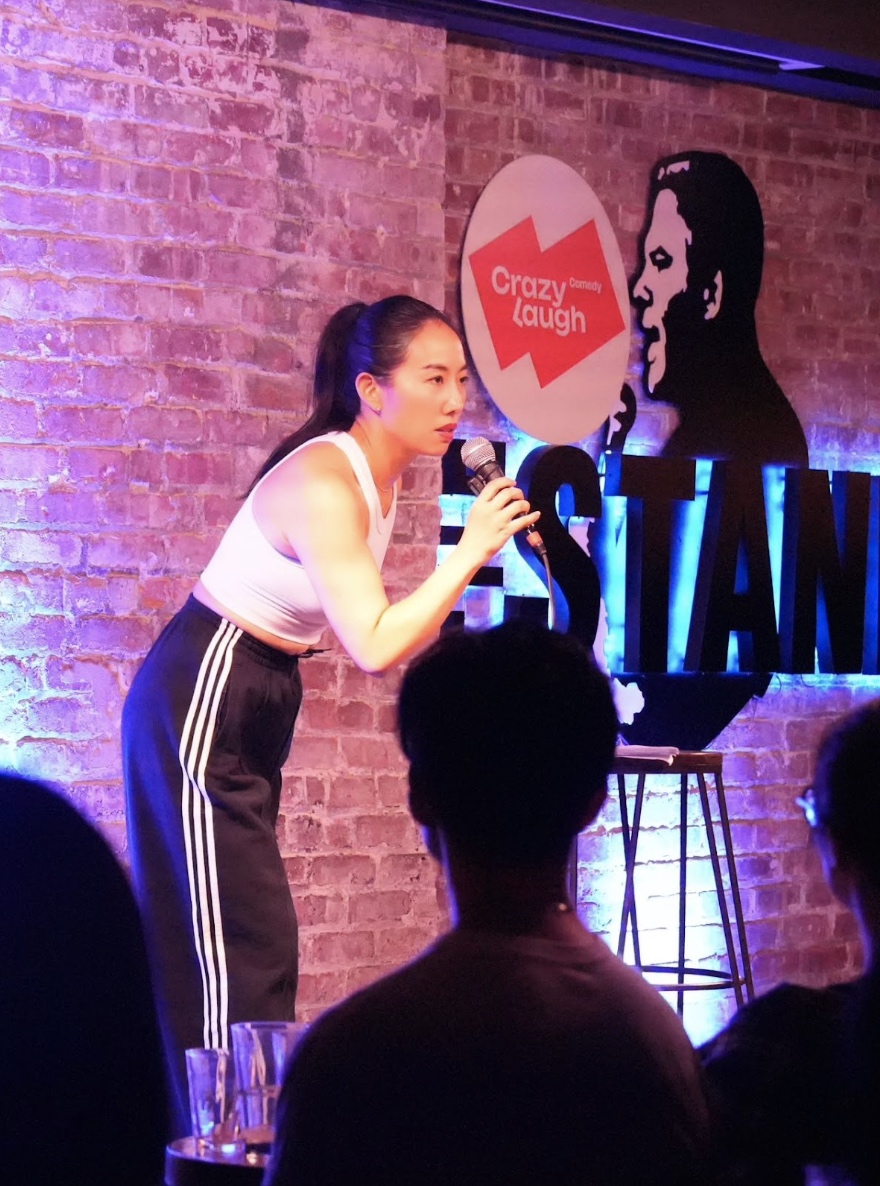
Immediately following the harassment incident, 47 knew she wanted more girls to hear about her experience, so she returned home to write down the material and performed it at an open-mic that same night. When another comedian questioned whether 47 should give further consideration before turning the incident into material for comedy, 47 said she was confident in the value and urgency for sharing her experience with audiences.
“I want to say things to girls that society is not telling us. I want to use my experiences to inform other girls and hopefully inspire further reflection,” said 47. “Let girls know that there are other girls who are willing to talk about these things publicly and it’s not shameful.”
Speaking from the heart
After first performing this segment, 47 said many fans who are young girls messaged her privately to thank her for speaking out. As 47 says, she is never attempting to meet the mainstream taste in comedy or deliberately positioning herself in a niche market. Rather she’s speaking from her heart and meeting her audiences along the way. In those moments, as a daughter and mother, she realizes the importance of giving voice to less represented perspectives on a mainstream platform.
As female comedians have a larger presence within China, they are also organizing all female comedy sets beyond the popular stand-up comedy competitions on streaming platforms. The offline stand-up show 三好姐妹 (Sān hǎo jiě mèi) features a roster of all female Chinese comedians. The podcast 小fool人 (Xiǎo fool rén) is another space created by female comedians to share their stories.
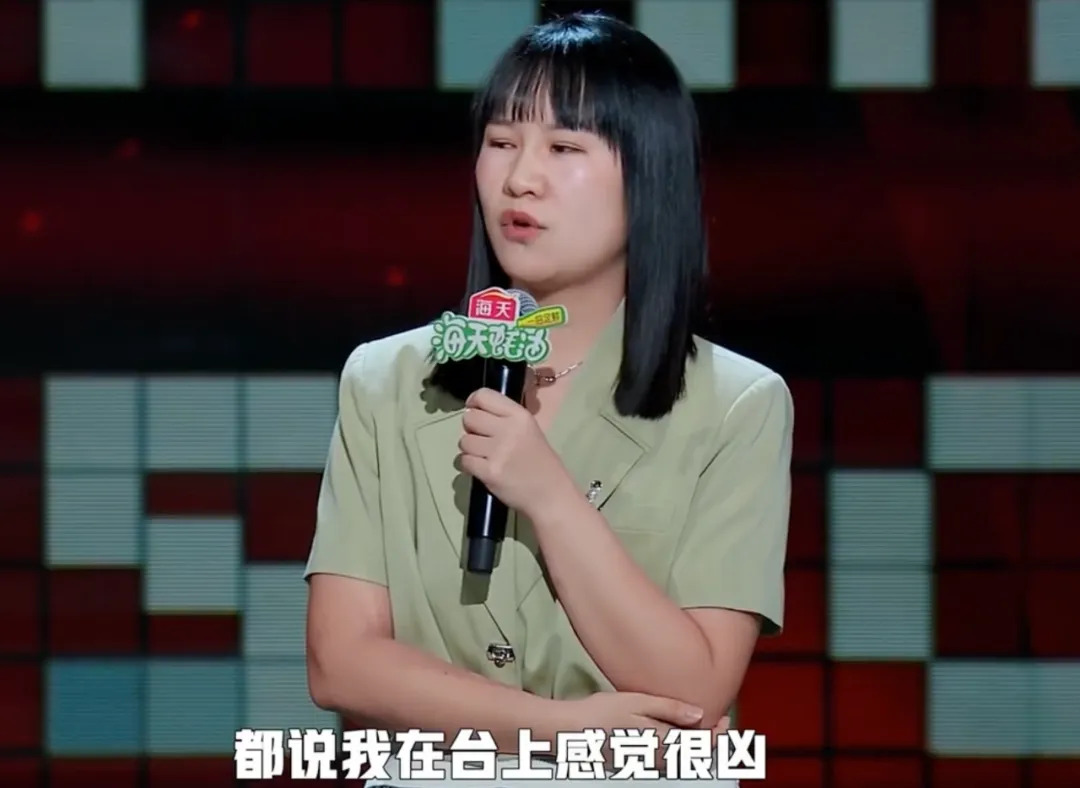
Offline, all-female shows are selling out performance spaces and attracting like-minded audiences. Yet back on streaming platforms, female comedians are facing the scrutiny of audience members and netizens alike. And many of these topics addressed by this year’s female contestants are by no means lighthearted.
On iQiYi’s The King of Stand-up, comedian Tang Xiangyu said her family is urging her to get married, satirizing her family’s perspective that daughters are never part of their original families and rather belong to their husband’s.
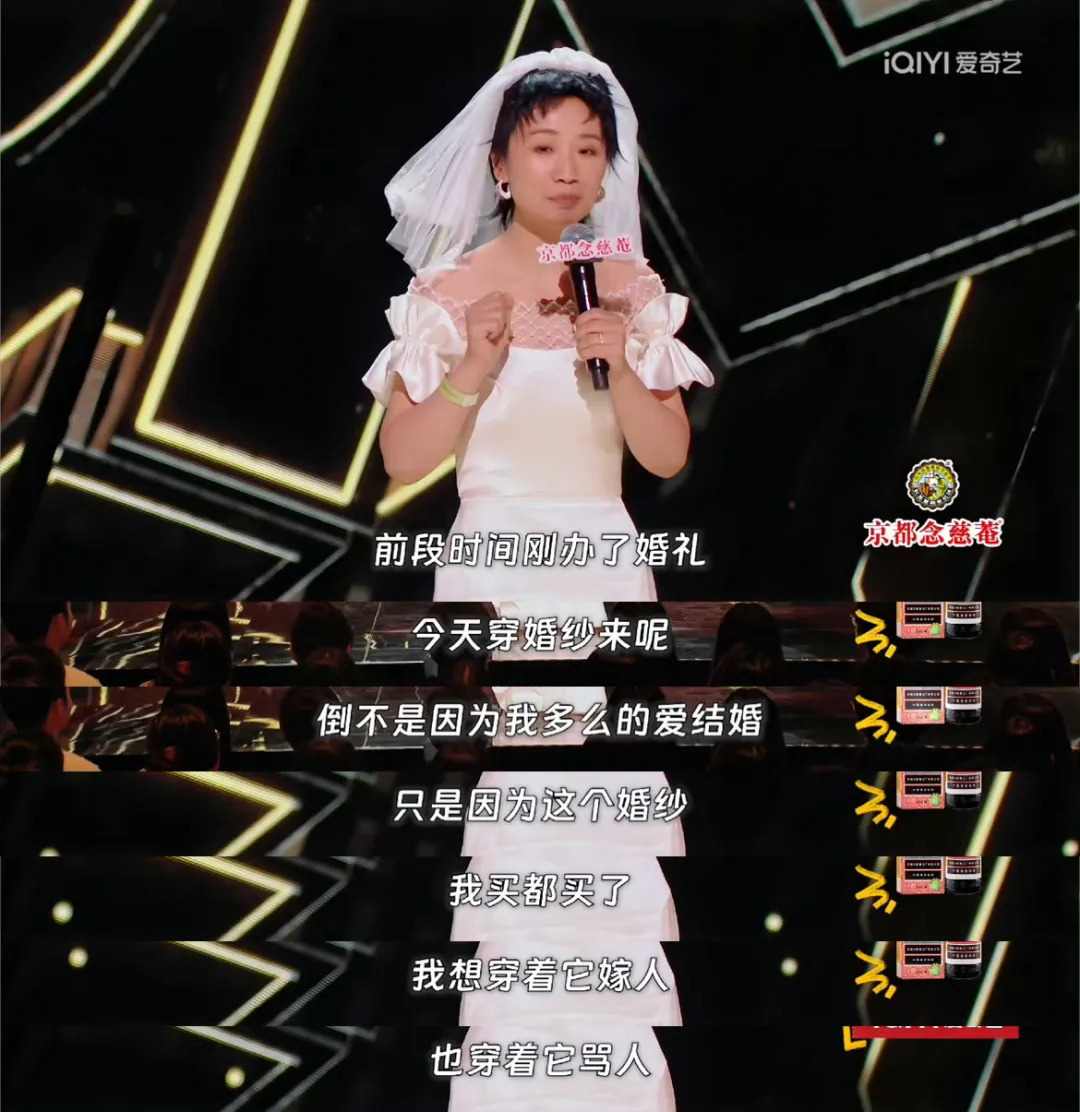
The pop-culture commentary account “柳飘飘了吗” said in a video on Bilibili, “As I was laughing, I suddenly began to cry. Why are female comedian’s sets so heavy? Because they are not only talking about their everyday lives, but also about the cruel reality that many women face.”
If heavier topics and female-centric comedy sets are not winning votes, then why are the comedians still choosing to perform them? As a comedian herself, 47 believes that speaking on topics from their own perspective is part of the creative process for any comedian, and it’s only natural that female comedians bring humor to issues that affect them.
As one of the female judges on the Tencent show, Chen Luyu, points out, using language to give voice to a topic is the first step toward progress. On this platform, female comedians are directing our attention to social issues that are rarely discussed elsewhere, and also showing by example that women are able to realize a full spectrum of emotions and vibrant forms beyond society’s expectations. They are sometimes ambitious, sometimes incisive, and at all times, they are being themselves.
Banner graphic by Haedi Yue.







